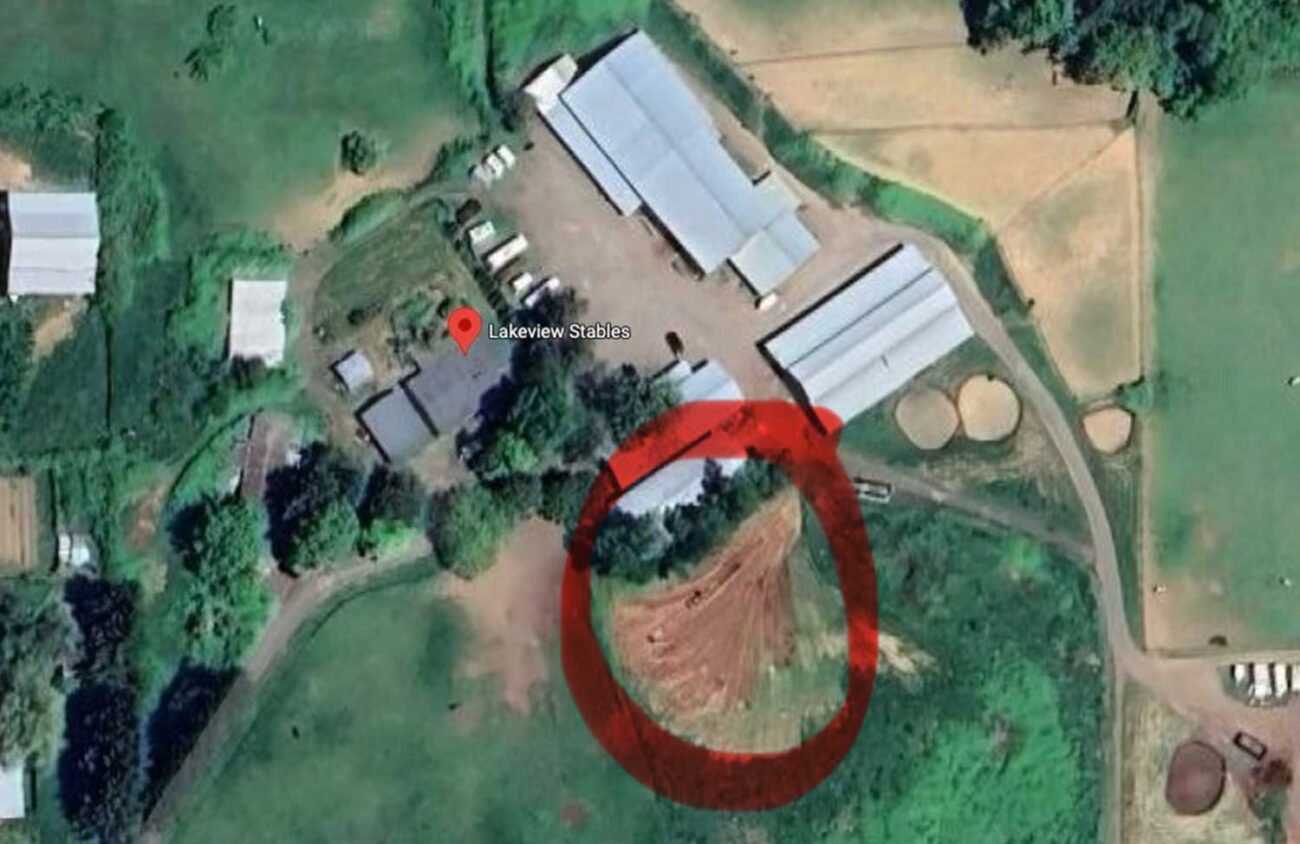The Oregon Department of Agriculture filed a lawsuit against the owner of Lakeview Stables, a horse boarding facility in West Eugene, alleging it has steadily amassed a 200,000 cubic foot mound of horse manure that threatens to contaminate Fern Ridge Reservoir
The mound translates to roughly 4.5 acres — or three football fields filled one foot deep — of horse manure.
An average horse weighs 1,000 pounds. If healthy, horses eat 20 pounds of food and drink eight gallons of water every day. A horse takes care of business frequently, sometimes pooping up to 13 times a day, producing over 45 pounds of manure.
Needless to say horses poop — a lot. But where is all of it supposed to go?
According to the U.S. Department of Agriculture, horse manure “contains primary macronutrients” and can be used by farmers as natural fertilizer. It is also proven to have a positive effect on the overall health of soil.
Neighbors Eugene Weekly spoke to agree with this philosophy and express support for Lakeview Stables owner Carolyn Tohm against the allegations by the state. Just down the street is New Hope Ranch, a family-run horse boarding facility.
Ranch manager Amy Hisaoka said the complaints in the lawsuit were “not warranted,” adding “I hope it’s not dangerous, but horses are herbivores and we are just recycling grass. Why would people use it if they found it to be so dangerous?”
She went on to say that the dangers that manure piles pose in comparison to the massive number of septic tanks in rural parts of Lane County is “laughable,” as she points out that “waste water is all over Oregon.”
Amy Hisaoka’s father, Wayne Hisaoka, the owner of New Hope Ranch, says, “These are farms. What are you gonna do? We are in the country. It’s the best way to recycle.”
It all started in 2016, after a community member made a complaint expressing concern about possible pollution in Lakeview Stable’s groundwater. After sending a field agent, the Oregon Department of Agriculture determined that the manure pile also poses a substantial hazard to the nearby Fern River Reservoir.
The ODA staffer collected a water sample in the road ditch alongside Lakeview Stables that drains into the Fern Ridge Lake in November 2016. The water was tested for E.coli and contained a small level of 2mpn/100mL (mpn — most probable number — is a technical method for estimating the number of bacteria in a food or water sample). This however, was not even close to violating the state water quality standard of 406mpn/100mL for E.coli per the Notice of Noncompliance Tohm received in 2021.
Bhe state still maintains it is “highly likely” that the manure pile contains excessive amounts of contaminants like E.Coli and other nitrates such as phosphorus that would be carried by rainwater from the stables to a nearby ditch draining into Fern Ridge Lake.
In November 2017 ODA tested a soil sample for phosphorus levels. The total levels of 967 mg/kg were well over what the state says are “normal levels in non-productive areas,” at 10 mg/kg.
In a notice of non compliance issued to Tohm in 2021, ODA stated, “Given that there is no vegetation to assimilate the nutrients, the nutrients are available to mobilize to surface water and groundwater.”
Nitrogen and phosphorus support the growth of algae, bacteria and aquatic plants, but an excessive concentration of these elements can pollute and reduce the overall quality of a body of water, according to the National Institutes of Health.
EW asked ODA Director of Communications Andrea Cantu-Schomus if there is proof that the manure contamination has drained into the state’s water; she replied, “In this case waste has been placed in a location where such wastes are likely to be carried to waters of the state.”
The state also maintains that Tohm has been issued with multiple “plans of correction” throughout the last seven years to adopt the agricultural rules set in place to protect water quality and enhance pollution control in the state of Oregon.
It is not clear, per Cantu-Schomus’ reply, if the groundwater under the manure pile or if Fern Ridge Lake has been tested for E.Coli and other nitrates since the state’s visit to Lakeview Stables in 2017.
ODA department staff conducted a follow-up site visit on October 16, 2019, to view changes that have been made in response to the plans of correction. A 2021 notice of non-compliance issued to Tohm states that the facility owner had told ODA that “she had tried to work with an excavation company to export stored manure to an off-site property, but the company went out of business and the owners of the off-site property decided that they did not want the material.”
So far, Thom has paid three fines for not complying with the state’s water quality rules, including one that totaled more than $6,000.
Tohm tells EW that she has been complying with the ODA’s requests. But Cantu-Schomus says, “At all site visits, the landowner has still placed waste at the storage location. ODA has worked with the landowner and DOJ to work toward compliance.”
When asked what she made of the numerous plans of correction that the ODA has proposed to her over the course of the last seven years, Tohm briefly denied all allegations, saying, “It’s more than safe and nothing is running down to Fern Ridge. It sucks.”
